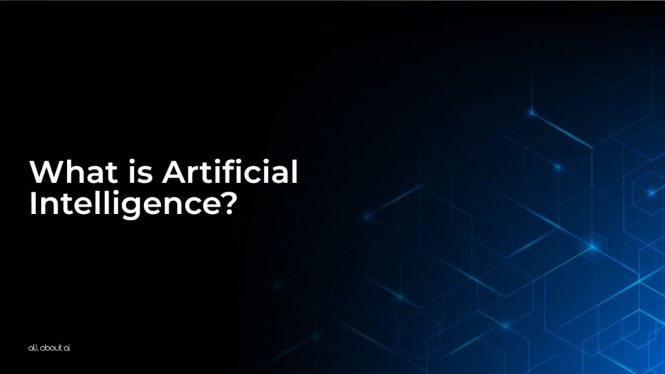
![]()
Artificial intelligence (AI) is rapidly transforming our world, from the way we interact with technology to the advancements in various industries. AI is no longer a futuristic concept but a tangible reality shaping our everyday experiences. This article delves into the fascinating world of artificial intelligence, exploring its core concepts, practical applications, and the ethical considerations that come with it. We will also address the concerns and misconceptions surrounding this rapidly evolving field. This comprehensive guide will walk you through the foundational concepts of AI, outlining its evolution, and provide a glimpse into its future implications.
What is Artificial Intelligence (AI)?
A Broad Overview of AI
Artificial intelligence, or AI, refers to the ability of computer systems to perform tasks that typically require human intelligence, such as learning, problem-solving, decision-making, and pattern recognition. It encompasses a wide range of techniques and approaches, including machine learning, deep learning, natural language processing, and computer vision. These techniques enable machines to learn from data, adapt to new situations, and improve their performance over time. AI is being integrated into countless applications, from self-driving cars to personalized recommendations on streaming services. The potential applications of AI are vast and constantly evolving.
The Evolution of Artificial Intelligence
From Early Concepts to Modern Applications
The concept of AI dates back to the mid-20th century, but significant advancements have been made in recent decades, particularly with the rise of powerful computing and large datasets. Early AI systems were often rule-based, relying on explicit programming to solve specific problems. However, the development of machine learning algorithms has enabled AI systems to learn from data and adapt to new situations. This shift has led to more sophisticated and versatile AI applications. The evolution of AI is closely tied to advancements in computing power and the availability of massive datasets, leading to breakthroughs in fields like image recognition and natural language processing.
Machine Learning: The Engine of AI
Core Concepts and Applications
Machine learning is a crucial component of AI. It empowers computers to learn from data without explicit programming. Algorithms analyze patterns in data to identify relationships and make predictions. Machine learning finds applications in various domains, including spam filtering, fraud detection, and personalized recommendations. Examples include spam filters that learn to identify spam emails based on past data, fraud detection systems that identify fraudulent transactions based on historical patterns, and recommender systems that suggest products or content based on user preferences.
Deep Learning: Unlocking Complex Patterns
Delving Deeper into Neural Networks
Deep learning is a subset of machine learning that uses artificial neural networks with multiple layers to analyze complex data. These networks can learn hierarchical representations of data, enabling them to identify intricate patterns and make sophisticated predictions. Deep learning has revolutionized image recognition, natural language processing, and other fields, enabling systems to perform tasks previously considered impossible for machines. For example, deep learning models have achieved near-human accuracy in image recognition tasks, allowing for advancements in medical imaging and self-driving cars.
AI Applications in Various Industries
Transforming Industries with AI Solutions
Artificial intelligence is rapidly transforming various industries. In healthcare, AI can assist in diagnosing diseases, personalizing treatment plans, and accelerating drug discovery. In finance, AI powers fraud detection systems and algorithmic trading strategies. In manufacturing, AI optimizes production processes and enhances quality control. These are just a few examples of the widespread impact of AI across numerous sectors. The practical applications of AI touch nearly every area of human endeavor, and its influence continues to grow exponentially.
What are the potential ethical concerns associated with artificial intelligence?
Ethical concerns around AI, such as algorithmic bias, job displacement, and privacy violations, are crucial issues demanding careful consideration. Addressing these challenges proactively will ensure that the development and deployment of AI systems benefit society as a whole. Addressing these ethical considerations is essential to ensuring the responsible development and use of AI in society.
What are the future implications of artificial intelligence?
The future of AI presents both exciting possibilities and potential challenges. Advancements in AI have the potential to revolutionize industries, improve healthcare, and address pressing global challenges. However, it’s crucial to consider the potential implications on various aspects of society to mitigate any unforeseen issues and manage advancements proactively.
In conclusion, artificial intelligence, or AI, is rapidly transforming various aspects of our lives, offering immense potential for innovation and progress. Understanding the core concepts and applications of AI is crucial for navigating this evolving landscape. By grasping the fundamentals of AI, individuals can prepare for future opportunities and contribute to its responsible development and deployment. Explore the exciting world of AI further and discover how it’s shaping our present and future! Visit our website for more resources and tutorials.